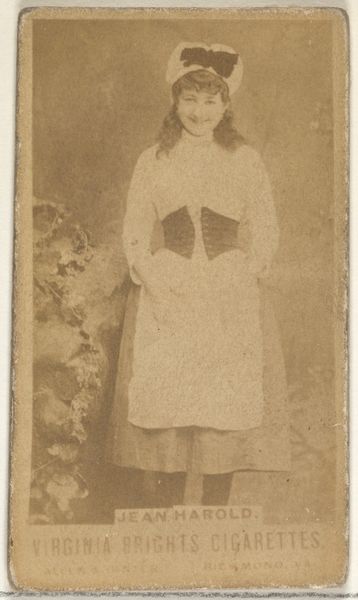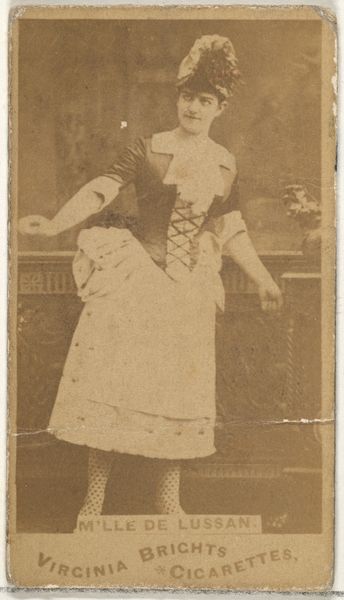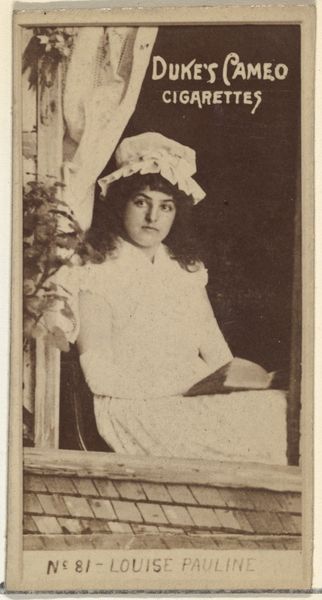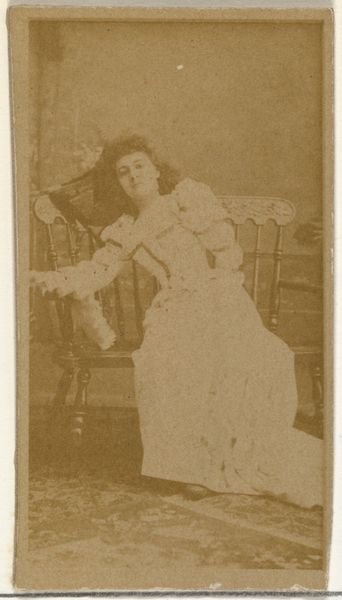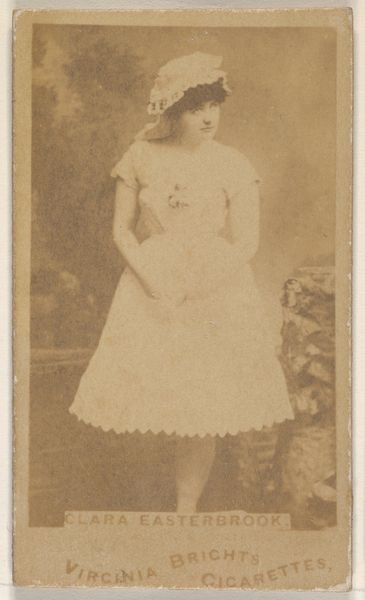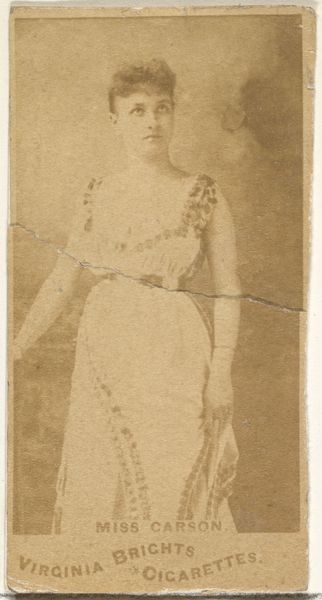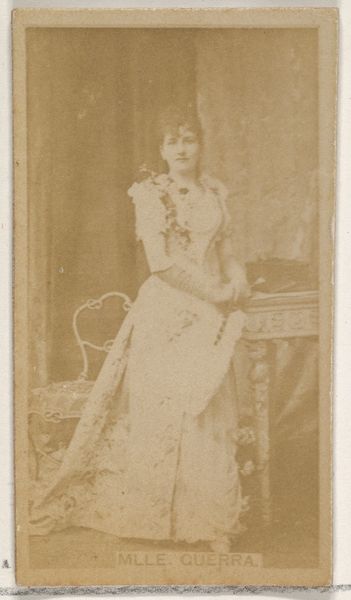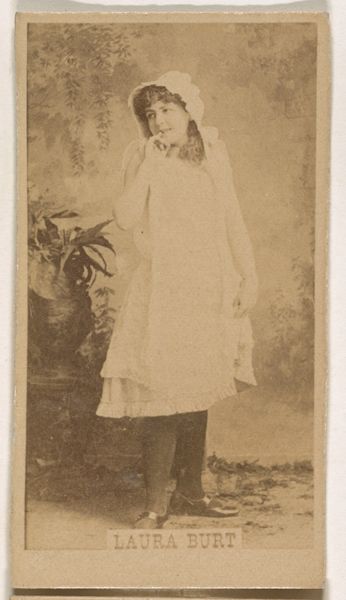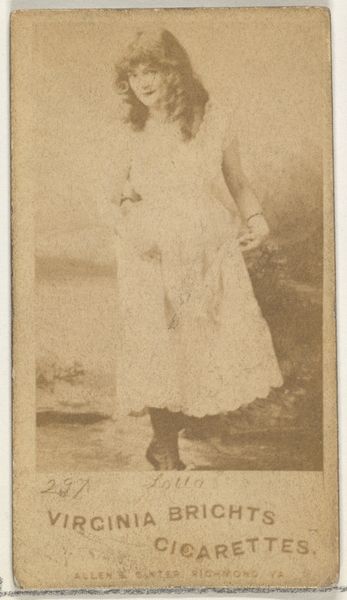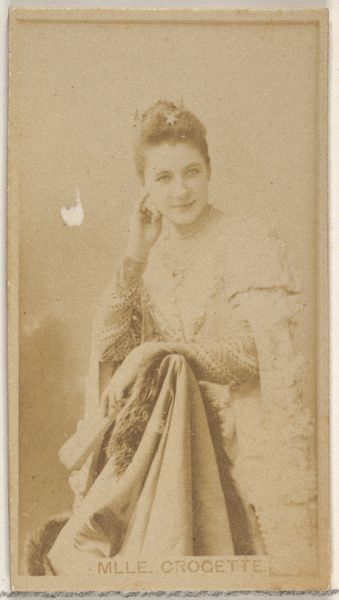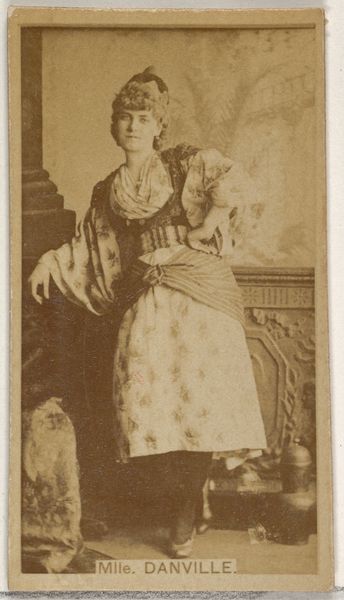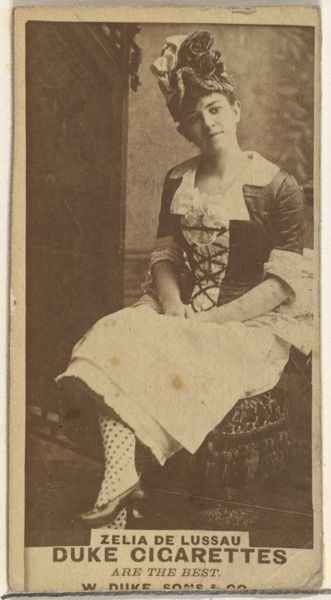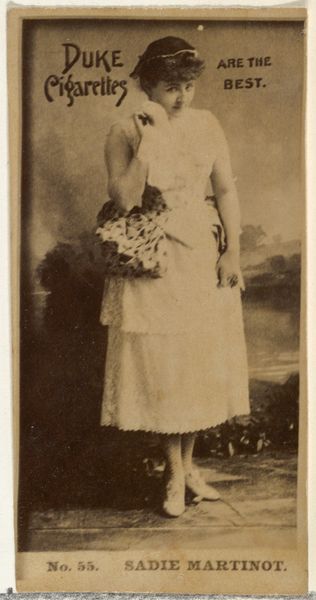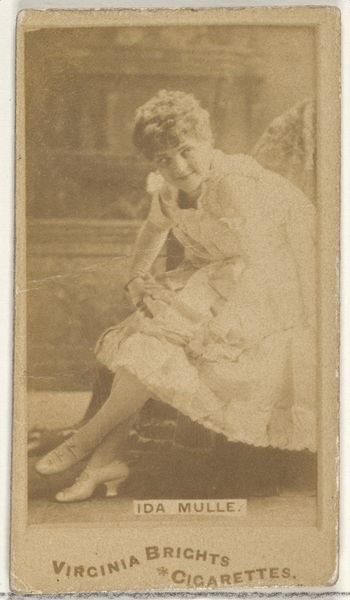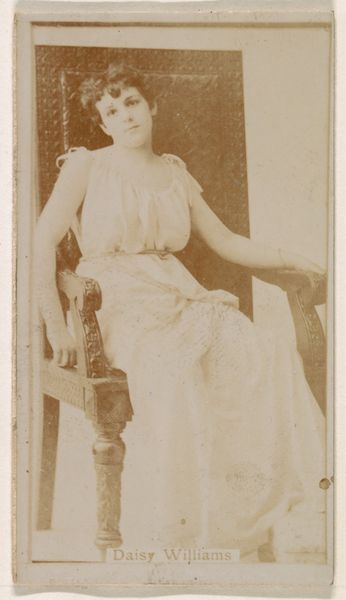
cyanotype, photography, albumen-print
#
portrait
#
cyanotype
#
photography
#
orientalism
#
cityscape
#
albumen-print
Dimensions: height 112 mm, width 80 mm
Copyright: Rijks Museum: Open Domain
Curator: Immediately, I notice the chilling effect of the cool tones; what an imposing cyanotype. Editor: Indeed. We are looking at a photograph from between 1903 and 1910 by Hendrik Doijer. It's titled "To op balkon Oranjestraat," which translates to "On the Balcony, Oranjestraat." Curator: The entire image is cast in this deep, almost spectral blue. It's striking how this choice in color emphasizes the formality of the setting but also the quietude of the moment. Editor: The architectural setting merges a neo-classical and vaguely tropical aesthetic with an interesting intersection between East and West, or Dutch and Indonesian sensibility. We get this portrait effect of a young woman, her figure highlighted. And in these albumen prints we've often come to understand Orientalism. Curator: Absolutely, it calls into question what is being represented. But the very materiality also adds to the aura, don't you think? The albumen print gives this incredible delicacy but then overlaid in this blue monochrome; the symbolic use of cyan, for memories or melancholia, enhances the experience. Editor: I see the cool colors amplifying feelings of longing, or perhaps anticipation, almost a dream state, though her face reveals none of this, it is more about the setting, suggesting something bigger in history and memory. Curator: What truly interests me, from an art historical perspective, is that it reflects the colonial gaze but uses a more progressive method—photography—to solidify it in memory. Editor: But at the time, the photographer's intention wasn't necessarily critical. Curator: Precisely, what the artwork might stand for now is very different from how it was received then. In that sense, it is as an emotional relic. Editor: Yes, a cyan memory capsule if you will, preserving an impression in its materiality, even if it remains elusive.
Comments
No comments
Be the first to comment and join the conversation on the ultimate creative platform.
